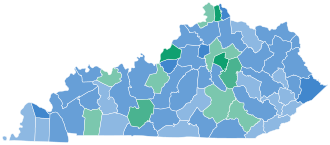Circuits


1
2
3
4
5
6 or more
- First Circuit – Ballard, Carlisle, Fulton, Hickman
- Second Circuit – McCracken
- Third Circuit – Christian
- Fourth Circuit – Hopkins
- Fifth Circuit – Crittenden, Webster, Union
- Sixth Circuit – Daviess
- Seventh Circuit – Logan, Todd
- Eighth Circuit – Edmonson, Warren
- Ninth Circuit – Hardin
- Tenth Circuit – Hart, LaRue, Nelson
- Eleventh Circuit – Green, Marion, Taylor, Washington
- Twelfth Circuit – Henry, Oldham, Trimble
- Thirteenth Circuit – Garrard, Jessamine
- Fourteenth Circuit – Bourbon, Scott, Woodford
- Fifteenth Circuit – Carroll, Grant, Owen
- Sixteenth Circuit – Kenton
- Seventeenth Circuit – Campbell
- Eighteenth Circuit – Harrison, Nicholas, Pendleton, Robertson
- Nineteenth Circuit – Bracken, Fleming, Mason
- Twentieth Circuit – Greenup, Lewis
- Twenty-first Circuit – Bath, Menifee, Montgomery, Rowan
- Twenty-second Circuit – Fayette
- Twenty-third Circuit – Estill, Lee, Owsley
- Twenty-fourth Circuit – Johnson, Lawrence, Martin
- Twenty-fifth Circuit – Clark, Madison
- Twenty-sixth Circuit – Harlan
- Twenty-seventh Circuit – Knox, Laurel
- Twenty-eighth Circuit – Lincoln, Pulaski, Rockcastle
- Twenty-ninth Circuit – Adair, Casey
- Thirtieth Circuit – Jefferson - Jefferson County Circuit Court
- Thirty-first Circuit – Floyd
- Thirty-second Circuit – Boyd
- Thirty-third Circuit – Perry
- Thirty-fourth Circuit – McCreary, Whitley
- Thirty-fifth Circuit – Pike
- Thirty-sixth Circuit – Knott, Magoffin
- Thirty-seventh Circuit – Carter, Elliott, Morgan
- Thirty-eighth Circuit – Butler, Hancock, Ohio
- Thirty-ninth Circuit – Breathitt, Powell, Wolfe
- Fortieth Circuit – Clinton, Cumberland, Monroe
- Forty-first Circuit – Clay, Jackson, Leslie
- Forty-second Circuit – Calloway, Marshall
- Forty-third Circuit – Barren, Metcalfe
- Forty-fourth Circuit – Bell
- Forty-fifth Circuit – McLean, Muhlenberg
- Forty-sixth Circuit – Breckinridge, Grayson, Meade
- Forty-seventh Circuit – Letcher
- Forty-eighth Circuit – Franklin
- Forty-ninth Circuit – Allen, Simpson
- Fiftieth Circuit – Boyle, Mercer
- Fifty-first Circuit – Henderson
- Fifty-second Circuit – Graves
- Fifty-third Circuit – Anderson, Shelby, Spencer
- Fifty-fourth Circuit – Boone, Gallatin
- Fifty-fifth Circuit – Bullitt
- Fifty-sixth Circuit – Caldwell, Livingston, Lyon, Trigg
- Fifty-seventh Circuit – Russell, Wayne